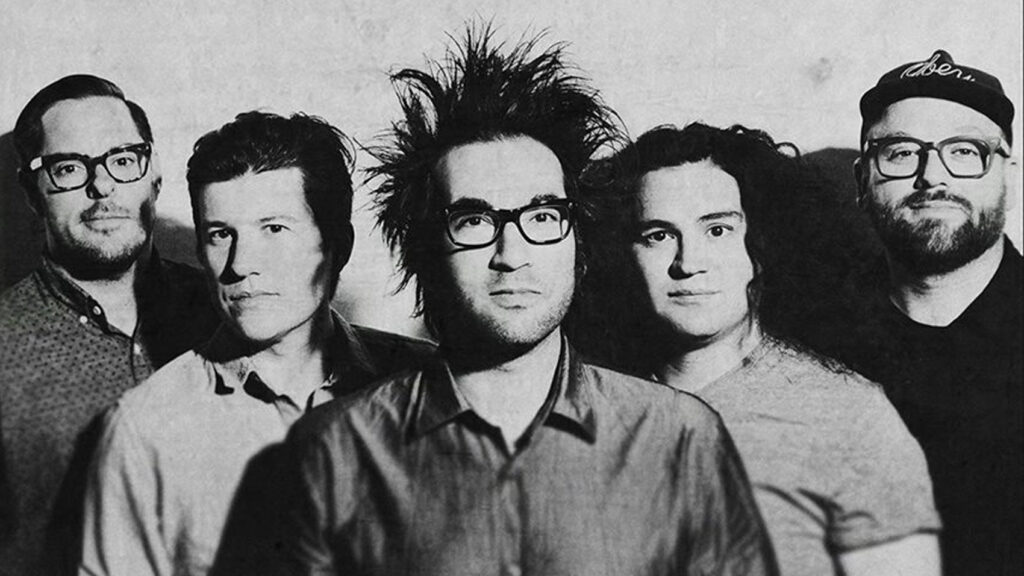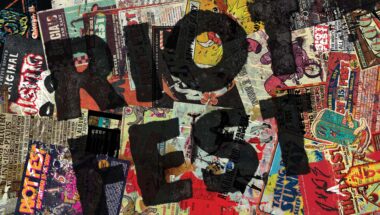After nearly two decades as a band, the members of Minneapolis indie/pop punk band Motion City Soundtrack announced that they will be going their separate ways following a summer farewell tour that will conclude at Riot Fest.
Following their September 2 appearance at Riot Fest & Rodeo Denver, the group will play a string of shows in Hawaii, Australia, and Japan before heading to Chicago for a performance at Riot Fest & Carnvival on September 17. The following night, Motion City Soundtrack will get up close and personal with fans one last time at Wicker Park’s iconic rock club Double Door before hanging up their collective hat for good.

Though these concerts will certainly have their share of bittersweet moments, we’re beyond honored to present them and take part celebrating the end of an era of a band that truly changed lives.
Motion City Soundtrack was formed in 1997 by recent high school grads guitarist/vocalist Justin Pierre and lead guitarist Joshua Cain, and after a number of lineup changes was rounded out by Moog/keyboardist Jesse Johnson, bassist Matthew Taylor, and drummer Tony Thaxton (Thaxton left in 2013 and drummer Claudio Rivera took his place until their farewell tour). After releasing a promising debut LP, I Am the Movie in 2003, they signed to Epitaph Records and took part in the Warped Tour, where their smart, introspective lyrics, melodic hooks, and unassuming stage presence made them a festival standout (in fact, they would go on to play a whopping ten Warped Tours during their career).
In the fall of 2004, Motion City Soundtrack met with producer / Blink 182 bassist Mark Hoppus at LA’s Seedy Underbelly Studios to record what would become their breakout album, Commit This to Memory. The lyrics were inspired by Pierre’s bouts of mental illness and his recent treatment for alcohol abuse, among other personal struggles, and the overwhelming desire to seize the day and create positive change. The response was immediate upon its release in June, 2005. The album debuted at #72 in the Billboard Top 200 chart and the single, “Everything is Alright,” an incredibly revealing song about Pierre’s battles with OCD, became a pop-punk classic.
Over the next decade, Motion City Soundtrack put out another four albums and a smattering of EPs, 7”s, and splits, each one showcasing their tight songwriting chops and changing perspectives as the band members entered new phases of their lives. Their most recent record, the John Agnello-produced Panic Station has been noted for possessing a confident demeanor that hadn’t been quite so articulated before. It’s an about-face from the early, often-pained writings of young men at odds with a difficult world, and it’s exciting to see how far they’ve come.
There are innumerable reasons that listeners are drawn to specific artists but ask a Motion City Soundtrack diehard about their favorite band and there are several recurring themes you will undoubtedly hear. Along with their knack for writing a killer pop hook and pristine melodies, their music was far-reaching enough to open listeners’ ears to the sounds of game-changing bands like Jawbreaker or the Replacements. They had a genuine, Midwest nature that was void of rock star posturing and stood out as relatable and sincere compared to many of their musical peers. Most notably, they could hear pieces of themselves in the band’s songs and realized they were listening to kindred spirits. Motion City Soundtrack may never play again after next month, but for their fans, their music will live on forever.
